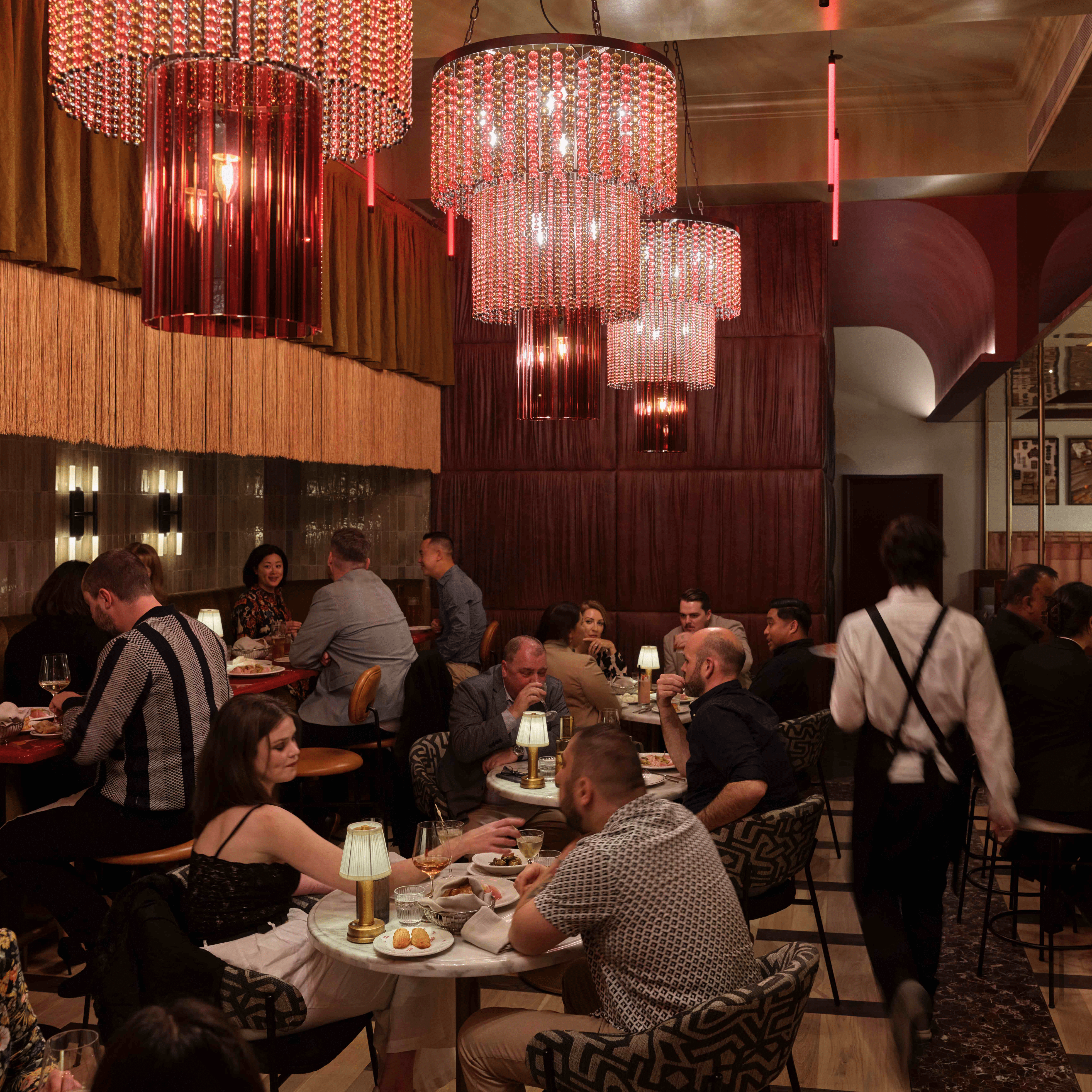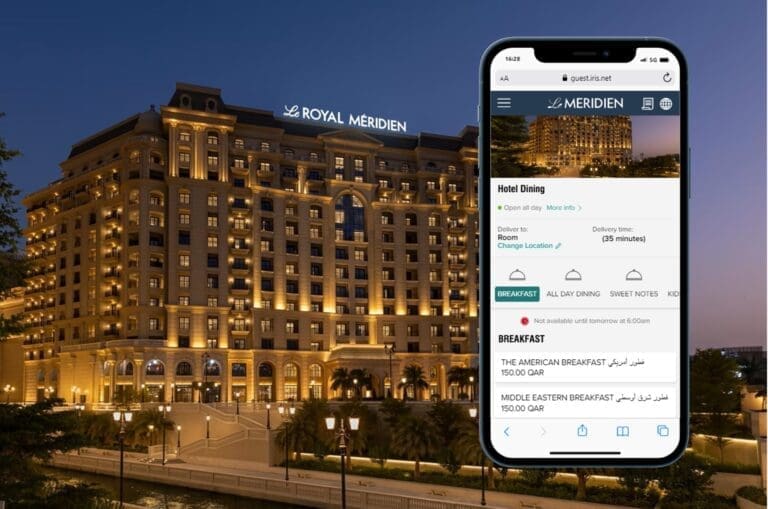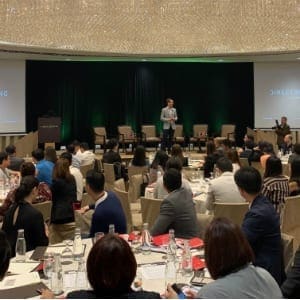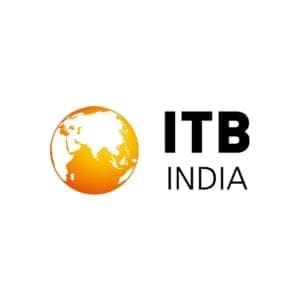The final day of IHIF 2019 opened with a series of interviews with providers of alternative models within the hospitality sector.
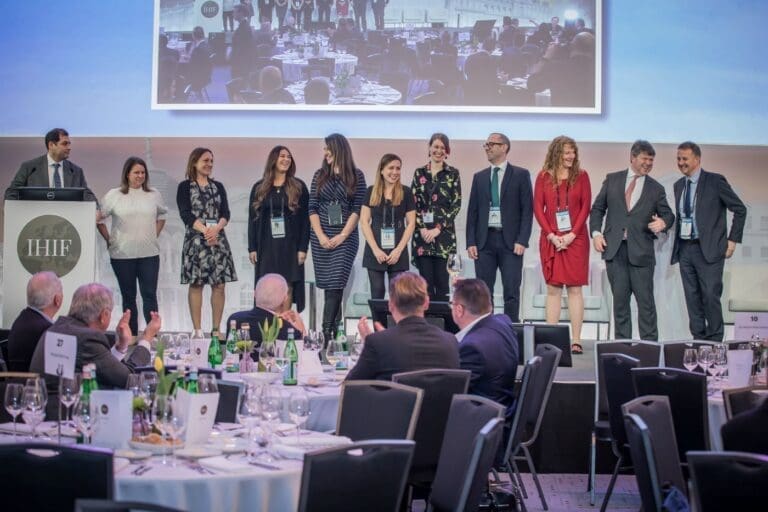 The first of these was Greg Greeley, President of Homes, Airbnb interviewed by Ömer Isvan, President, Servotel.
The first of these was Greg Greeley, President of Homes, Airbnb interviewed by Ömer Isvan, President, Servotel.
Greeley said that from a company “whose owners opened their homes 10 years ago just to pay their rent” Airbnb now operates in 191 countries and has 7 million listings. Greeley believes they are in “the magical travel business”. Isvan questioned Greeley on the relationship with hotels to which he answered “last year we opened our arms to boutique hotels and our phones have been ringing off the hook. Any boutique hotel who provides a unique experience should not think of us as a competitor, they should think of us as a partner”.
According to research, 89% of people who use Airbnb say they do so because there is no hotel in the area they want to stay so Airbnb say they stimulate travel in areas where it wouldn’t normally be.
Talking about the types of accommodation listed, Greeley said: “traditional vacation rentals, which have been around for years, have found that Airbnb is a useful platform”. Isvan wanted to understand the percentage of real estate that is purpose built for listing on Airbnb. Greeley replied that “there is dialogue between developers and Airbnb. Airbnb is an open platform so developers who want to create a unique short-term rental, can do so.”
For a brand that is now a noun, Greeley believes the values are community and connecting.
“We give the opportunity to stay somewhere there wasn’t previously a hotel. People are going to places that are magical and they’re making a connection, they’re not having a commoditised travel experience.”
This was followed by an interview with Liam Brown, President & Managing Director Europe, Marriott International interviewed by Alexi H. Khajavi, Managing Director EMEA & Chair of Hospitality + Travel Group, Questex. Brown, having recently returned to Europe from a period living in the US praised the European hotel market for having “remarkable breadth and depth of cultures and languages”.
Marriott, who have 18 brands in Europe want to create “raving brand fans” and whilst listing guests, owners, investors, developers, technologists as stakeholders in their business, Brown said “the guest is the true profit centre for all of us – they pay the bills”.
Discussing the balance of high tech and high touch, Brown said: “if there is a seamless operation for checking in and checking out, that frees up our people to deliver amazing experiences because it’s the human experiences that people remember – they are the most magical moments.”
When questioned about the data breach, Brown said “it happened in the Starwood reservation database which has since been retired. Our forensics are complete. Our mission is to continue to work to have the trust of our guest and ensure it doesn’t happen again.” He said that Amazon and Google are brands that he admires for their constant innovation and dominant position but he also remains wary of them.
When challenged by Khajavi to name all 30 Marriott brands in a minute, Brown took up the challenge and concluded by saying that “our industry has a great opportunity to bring people together – hospitality has a higher purpose”.
The final panel for the morning was the CEO Panel – Evolving Hospitality: The Trends Shaping the Future of Hospitality moderated by Philip Ward, CEO Hotels & Hospitality Group EMEA, JLL who was joined by Peter Fankhauser, CEO, Thomas Cook Group; Raúl González, CEO, Barceló; Merilee Karr, Founder and CEO, UnderTheDoormat; Amar Lalvani, CEO & Managing Partner, Standard International and Lindsey Ueberroth, CEO, Preferred Hotels & Resorts.
The engaging panel opened with Karr saying “in 5 years’ time, every one of the major hotel brands will have a home accommodation brand in their portfolio” and when questioned about the number of operators said “in an industry that is growing at 30% each year, there is space for a lot of players”. Ward suggested there was an “institutionalisation of hotel accommodation” emerging.
On consumer demand for home accommodation like Airbnb and UnderTheDoormat, Lalvani said “the customer wants home accommodation and ultimately that is what wins. But what we can do is bring people together for common experiences and Airbnb can’t.”
He challenged the usefulness of many of the hotel brand apps which simply put website content on them and said their app, One Night Standard, listed all their unsold inventory after 3 pm to huge success.
Discussing Preferred Hotels (80% of which is individually owned), Ueberroth said “the hard brands have all launched a version of what we do. It is not competition but validates what we do”.
Talking about the number of hotels and brands, Lalvani said “repeat bookings are totally driven by the experience on property – the number of hotels and brands doesn’t matter”.
Karr pointed out that “10% of stays in London are in home accommodation. I don’t think it’s a case of distruptors v’s hotels. It’s about how the whole sector of accommodation grows.”
Coming back to the demand for different types of accommodation from various consumer group, Lalvani stated “young people around the world now first think about home accommodation before hotels. Hotel companies are naïve in not recognising this”.
Ward suggested that business travellers didn’t use home accommodation, largely due to their employers not reimbursing home accommodation expenses.
Karr responded by saying “home accommodation is part of the mix that business travellers will increasingly wake up to. I see companies paying more attention to the wellbeing of their employees and opening up their minds to home accommodation. The ability to have a bit of space and to be able to make your own healthy breakfast for example.”
On F&B Fankhauser said “in Cook’s Club, the centre of the activity is in the restaurant and bar.
González said “as a family business we want to maintain a balance between ownership, leases and management” and he believes they “are competing in the happiness sector”.
The subject of loyalty concluded the session and Ueberroth feels “we need to remove the word loyalty, now it’s about lifestyle, about providing experiences and how do you pull that into the programme. Travel is about more than that time on property”.
The morning closed with a keynote from Mark Gallagher, Founder, Performance Insights and Formula One industry analyst who spoke to the conference theme of Partnering for Peak Performance.
The 22nd IHIF closed with a sit-down, three-course meal, with many tables being hosted by the IHIF Sponsors and Patrons.


